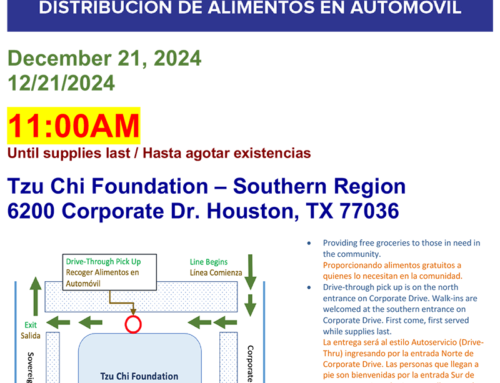 With 61 apartment complexes sprawled across the International Management District, a partnership with the Houston Apartment Association has contributed to better security for residents and better education for thousands of school children.
With 61 apartment complexes sprawled across the International Management District, a partnership with the Houston Apartment Association has contributed to better security for residents and better education for thousands of school children.
The Rental Credit Reporting System, funded by the District for multi-family property owners, is a program that allows landlords to better screen potential tenants’ credit and criminal backgrounds as well as their rental histories. The result has been a more stable base of apartment residents throughout the district.
For children, that has meant fewer transfers between schools and improvements in their educational achievement. The District is home to 15 elementary schools, three intermediate schools, four middle schools and four high schools in the ethnically diverse Alief Independent School District.
“A big impetus was to keep kids in the same schools,” said Natali Hurtado, executive director of the International Management District. “It’s so important for children to stay in the same school to foster their educational continuity. They get a sense of security from not switching schools.”
For property owners, the RCR program allows landlords to screen out potential tenants with a criminal background or a history of “jumping from apartment complex to apartment complex.”
Less residential turnover reduces “make-ready” and maintenance costs, while boosting community safety, as longer term residents tend to get to know their neighbors.
Working in partnership with CoreStaff, the Houston Apartment Association’s RCR program provides multiple ways for apartment managers to consider the applications of potential residents. A six-part assessment of each potential resident includes a National Landlord-Tenant database, a Texas criminal data base, a sex offender search, a terrorism check through the FBI and other federal agencies, an eviction history, and a record of each potential tenant’s moves in and out of apartments.
The training for the RCR program, provided by the Houston Apartment Association, also allows apartment managers to learn about ways to enhance community safety, ranging from improved lighting and landscaping to engagement programs by the Houston Police Department.
Tina DeFiore, who runs the RCR program for the Houston Apartment Association, said its positive impact on school children was first noticed about seven years ago. Families who stayed longer in the same apartments saw an immediate benefit to students in elementary and middle schools.
“In some cases, just transferring schools can cause a student to fall behind by as much as a year,” DeFiore said.
Although the Centers for Disease Control had extended an eviction moratorium through June 2021 because of the pandemic, the Texas Supreme Court decided in early April that landlords could start eviction proceedings against tenants who have failed to pay their rent.
Without a local government order prohibiting evictions, the Supreme Court’s decision meant that landlords could begin issuing eviction citations on May 19, 2021.
Financial aid and legal advice for such tenants are available, however. The Texas Department of Community Affairs offers help for Texans who need rental assistance, and the Harris County Community Services Department also has some aid available to lower-income renters.
The Houston Apartment Association advises tenants to try to work with their property managers to come to an agreement to pay for past due rent. In most cases, renters who fell behind in their payments due to the pandemic should have already let their landlords know why they might have fallen behind.
— By Anne Marie Kilday






Leave A Comment